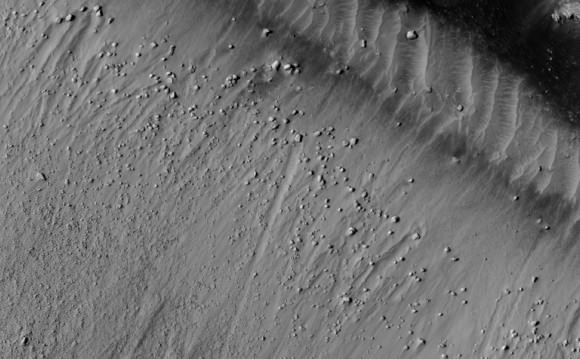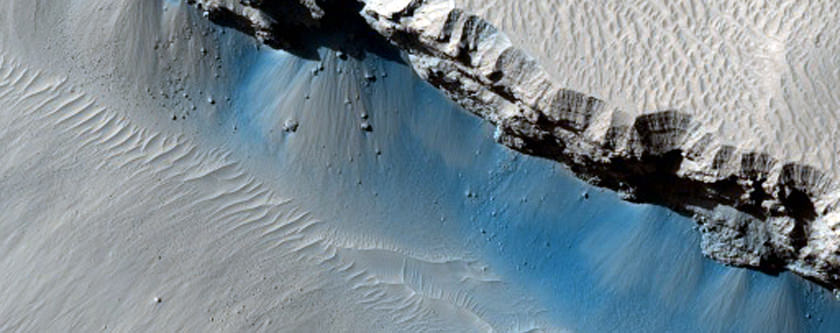[/caption]
Compared to Earth, Mars is a relatively quiet planet, geologically speaking. Actually, very quiet, as in pretty much dead. While it has volcanoes much larger than any here, they have been inactive for a very long time; the latest studies suggest however that volcanic activity may have continued until only a matter of millions of years ago. That seems like an eternity to our human sense of time, but geologically, it is quite recent.
There is also the massive canyon system Valles Marineris, much larger than the Grand Canyon here on Earth, and evidence for ancient hot springs, glaciers, etc. which also show that Mars was once much more active than it is today.
Now, there is also evidence that marsquakes (as in earthquakes here) continued to shake the planet until only a few million years ago, and may even still happen today.
Earthquakes are a common, daily occurrence on our planet, but what about Mars? If they do still happen, they would seem to be much more infrequent than they are here. The new study, however, supports the idea that Mars was geologically active for longer than previously thought, and perhaps still is.
Scientists in Europe have been examining images of a Martian fault system, Cerberus Fossae, taken by the Mars Reconnaissance Orbiter. They’ve found a spot where boulders have tumbled down cliffs near the fault; what’s interesting is that they are primarily found in one location, best explained by marsquakes rather than melting ice and avalanches. This grouping of boulders suggests that they were near the epicentre of a marsquake. The trails behind the rolling boulders are still visible, indicating that they must have fallen relatively recently, with not enough time yet for winds to erase the trails.

Marsquakes would also be evidence for possible continued volcanism on the planet, even if only deep underground. That itself has further implications, since it is already known that there are massive ice deposits beneath the surface, even closer to the equator. Heat from any recent or current activity could create liquid water in places, which of course leads back to the question of possible present or past life.
Falling boulders, then, while an interesting observation in themselves, may actually also help to solve some of the ongoing mysteries about the Red Planet.
The study was published in the Journal of Geophysical Research. The paper is available here (by subscription or for $25.00 US).


Pay $25 for a shaky theory? 😉